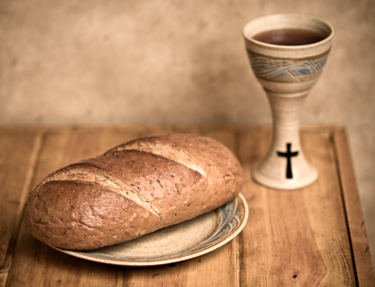Recently at Emmanuel we had a sermon and discussion on the subject of worship – in particular, how we should go about the continual process of trying to reform our worship in accordance with Scripture. For many people, this raises an uncomfortable tension.
On the one hand, obviously there must be something to be said for seeking to shape our worship in accordance with Scripture. It may not always be easy to figure out all the details, but in principle, since everything comes under the Lordship of Christ, it’s hard to regard the practical and liturgical details of our church services as unimportant.
But on the other hand, we want to avoid conveying the idea that the liturgical niceties are the be-all-and-end-all of the reformation of worship. Without retreating into gnostic pietism, there is surely something to be said for the idea that the LORD accepts those whose hearts are right before him, who seek him in faith with a repentant spirit.
2 Chronicles 30 sheds some helpful light on the subject. In this chapter, King Hezekiah is in the process of reorganizing the Passover festival after generations of neglect. Clearly, the King is concerned with making sure that everything is done in a certain way, as some of the details in the text make clear (e.g. vv. 14-16). We don’t know how (un-)comfortable the people found these arrangements, though we can be sure that they were unfamiliar with them, since the Passover hadn’t been celebrated for so long. But regardless of this, the liturgical details matter.
Yet at the same time, when Hezekiah realises that many of the people “had not consecrated themselves” (v. 17), thus not following the prescribed pattern of worship, he prayed for them, asking that God would “pardon everyone who sets his heart to seek God, the LORD, the God of his fathers, even though not according to the sanctuary’s rules of cleanness” (vv. 18-19). And the LORD heard his prayer:
17 For there were many in the assembly who had not consecrated themselves. Therefore the Levites had to slaughter the Passover lamb for everyone who was not clean, to consecrate it to the LORD. 18 For a majority of the people, many of them from Ephraim, Manasseh, Issachar, and Zebulun, had not cleansed themselves, yet they ate the Passover otherwise than as prescribed. For Hezekiah had prayed for them, saying, “May the good LORD pardon everyone 19 who sets his heart to seek God, the LORD, the God of his fathers, even though not according to the sanctuary’s rules of cleanness.” 20 And the LORD heard Hezekiah and healed the people. (2 Chronicles 30:17-20)
Obviously this doesn’t mean that the details of the regulations don’t matter. It’s not a licence for liturgical anarchy. On the contrary, it shows that these details do matter, otherwise why would Hezekiah have bothered to pray for those failed to follow them? And it certainly doesn’t give grounds for deliberately ignoring the biblical pattern of worship.
However, it does show that if there are any who seek God, but because of ignorance or for some unavoidable reason are not in a position to follow a biblical pattern of worship, the LORD will pardon and welcome them anyway.
To my mind, this provides a helpful perspective as we try gradually to re-shape our worship in keeping with Scripture: it’s a good and important thing to do, and at the same time God isn’t sitting up in heaven with a massive frown on his face waiting for us to “get it right” before he’s willing to accept us.
Rev Dr Steve Jeffery is Minister at Emmanuel Evangelical Church, London, England (Blog, Facebook, Twitter)













